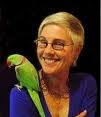Serendip is an independent site partnering with faculty at multiple colleges and universities around the world. Happy exploring!
Kristin's Origin Stories

Kristin's Origin Stories
Origins/intersections/categories
Personal/political/intellectual
Heritage: Photo of my great-grandmother in her 90s with her skis behind her, in northern Sweden, above the Arctic Circle—you can see the tradition of physical robustness and survival that I come from.
![]()
Origins: Working-class, industrial town in Connecticut with successive waves of immigrants.
Categories: Swedish-American, Portugese-American, Brazilian-American.

Education: Like Ortner at Bryn Mawr, the shock of a new socioeconomic and cultural context as a scholarship kid and day student at an all-girls boarding school. Pleasurable awareness of myself as a young intellectual, painful awareness of class differences. Little awareness of the difference women’s education makes.
Categories: wealthy, not wealthy-- no gradations

More Education: Gender shock in mostly male environment of Dartmouth in the early days of co-education. Acute awareness of gender, ease moving across class difference, retrospective recognition of the value of women’s education. Headiness of second wave of feminism, women’s studies program as my social and intellectual home.
Categories: male (frat boy/not) or female (jock/not)
Still more Education: I went to grad school @ Columbia and Bryn Mawr
ostensibly to study literature, but really to study gender.
Categories: disciplinary ones of literature, philosophy, women’s studies
Parenting: Boys—another shock! I thought I was well-prepared to raise strong, self-confident girls,
but boys were another story—what to do with boys?
Categories: boys and girls
Two parenting choices: giving our boys my last name rather than their father’s name, and
keeping their hair long until they wanted to make a choice about hair length.
(Photo of Anders as Mary Cassatt.)
Illness: interruption of work, taking my work in a new direction: feminist disability studies.
Categories: disabled, nondisabled; theory and practice
Importance of feminist mentors and four important ones:

Adrienne Rich, poet and essayist, “When We Dead Awaken: Writing as Re-Vision” 1972
(I read it a decade later)
“Re-vision—the act of looking back, of seeing with fresh eyes, of entering an old text from a new critical direction—is for women more than a chapter in cultural history: it is an act of survival. Until we can understand the assumptions in which we are drenched we cannot know ourselves. . . a change in the concept of sexual identity is essential if we are not going to see the old political order reassert itself in every new revolution. We need to know the writing of the past, and know it differently than we have ever known it; not to pass on a tradition but to break its hold over us.”

Carolyn Heilbrun, feminist scholar, Writing A Woman’s Life, 1988
“There are four ways to write a woman’s life: the woman herself may tell it, in what she chooses to call an autobiography; she may tell it in what she chooses to call fiction; a biographer, woman or man, may write the woman’s life in what is called a biography; or the woman may write her own life in advance of living it, unconsciously and without recognizing or naming the process.”

Rosemarie Garland-Thomson, feminist disability studies scholar, Extraordinary Bodies, 1992
“. .. I intend to introduce such figures as the cripple, the invalid, and the freak into the critical conversations we devote to deconstructing figures like the mulatto, the primitive, the queer, and the lady. To denaturalize the cultural encoding of these extraordinary bodies, I go beyond assailing stereotypes to interrogate the conventions of representation and unravel the complexities of identity production within social narratives of bodily differences.”

and Nancy Mairs, poet and essayist, Waist-High in the World, 1996
“I am literally diminished by my disability, reduced to a height of about 4’8”, consigned to gazing at navels (generally shrouded) other than my own. But diminution is not the whole of it. “Waist-high” also resonates with “knee-deep.” This is no piteously deprived state I’m in down here but a rich, complicated, and utterly absorbing process of immersion in whatever the world has to offer.”


